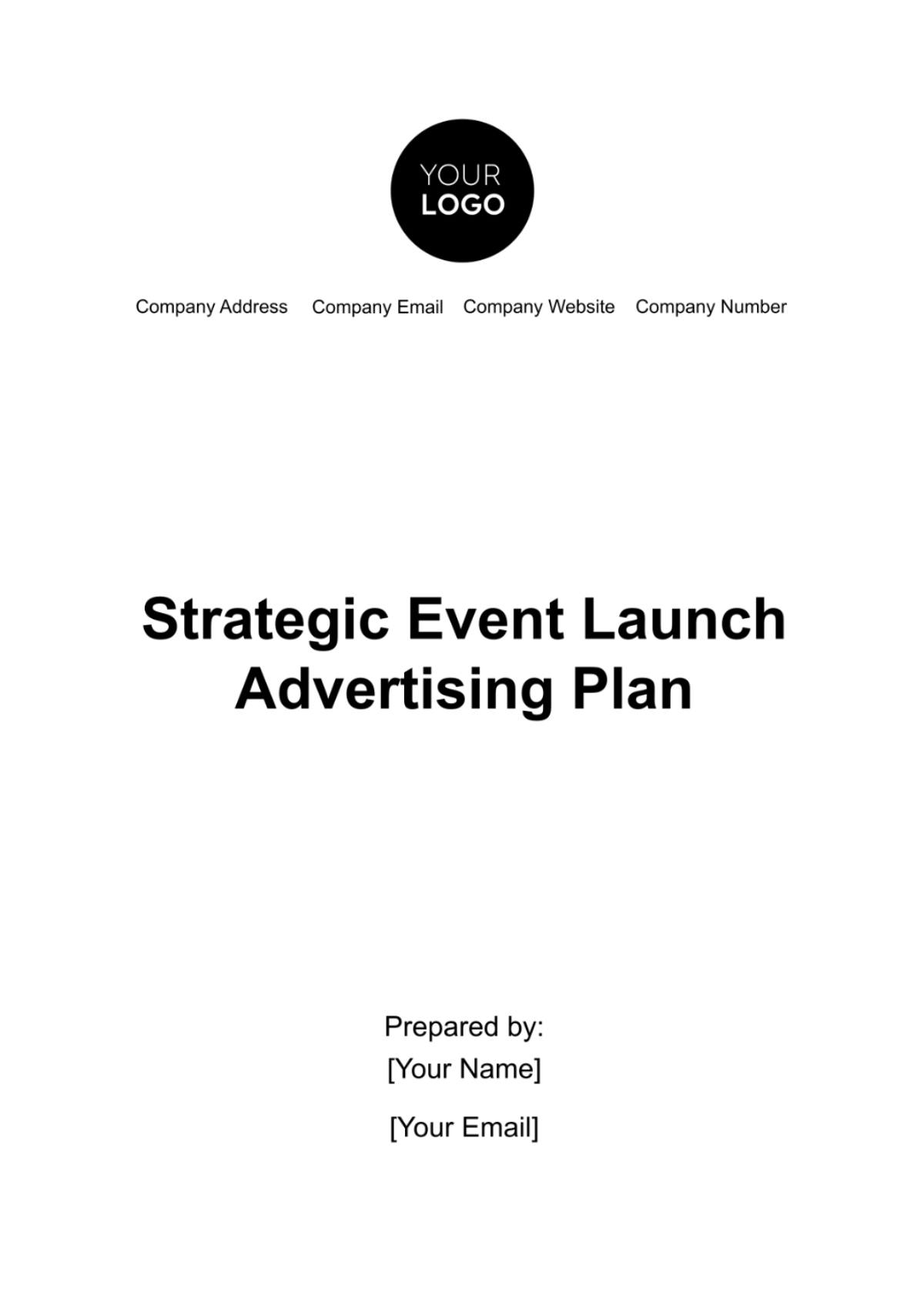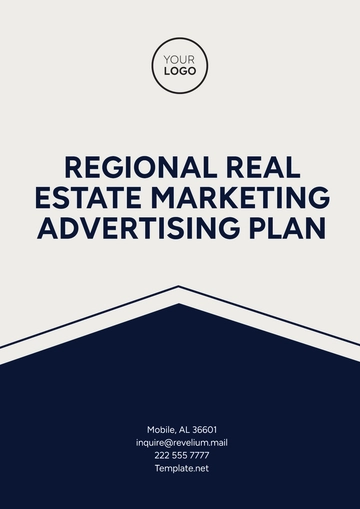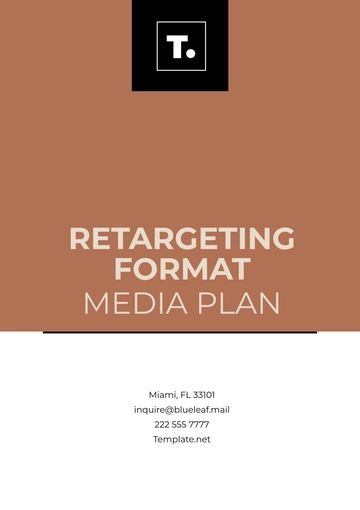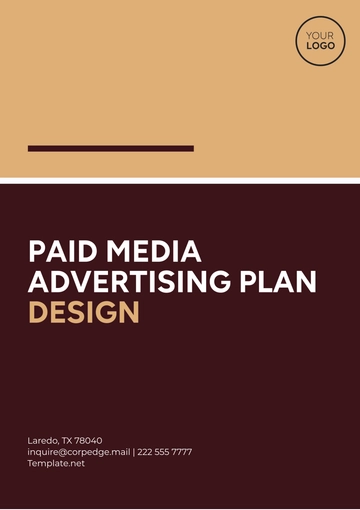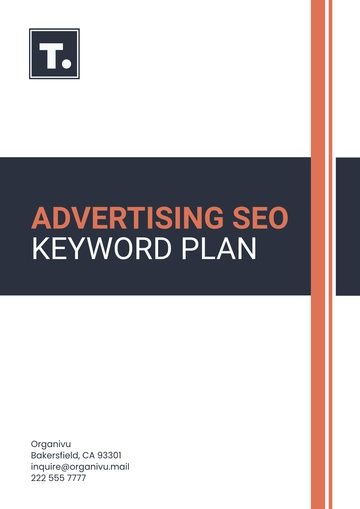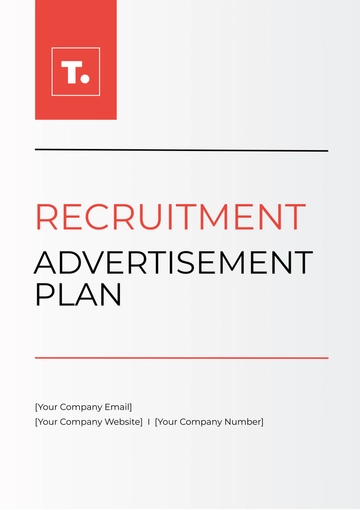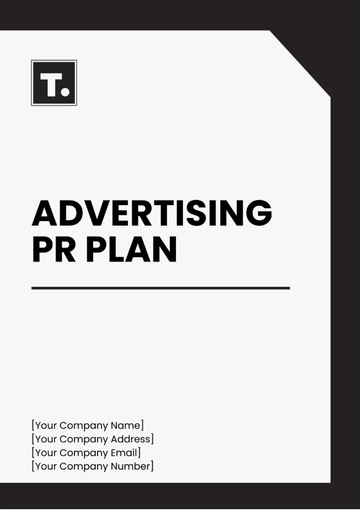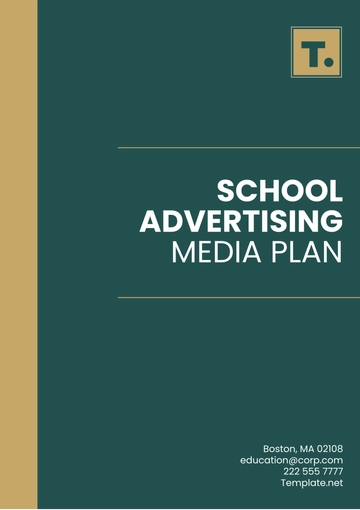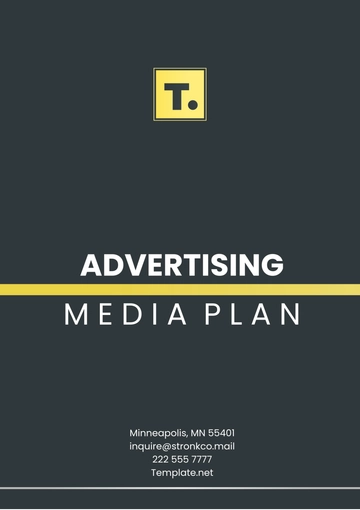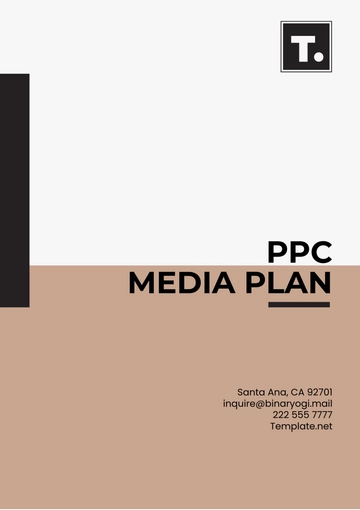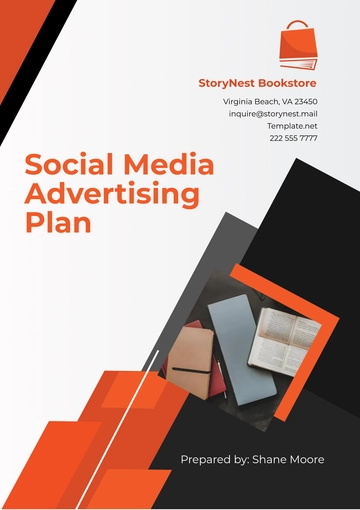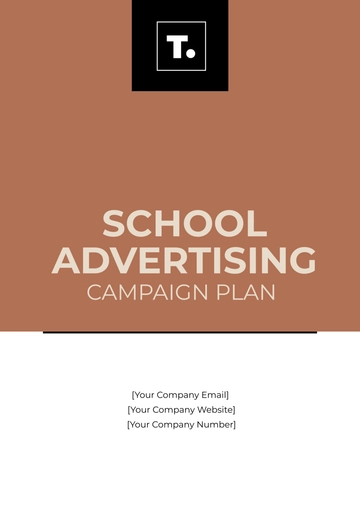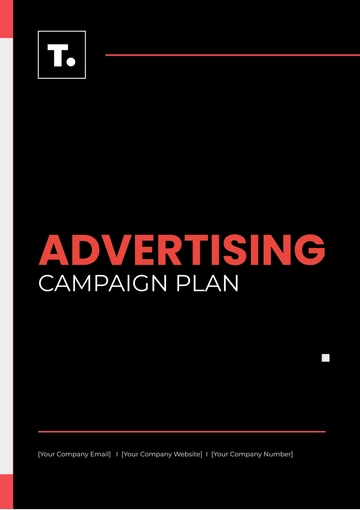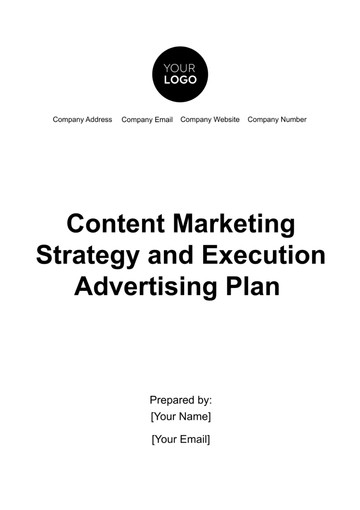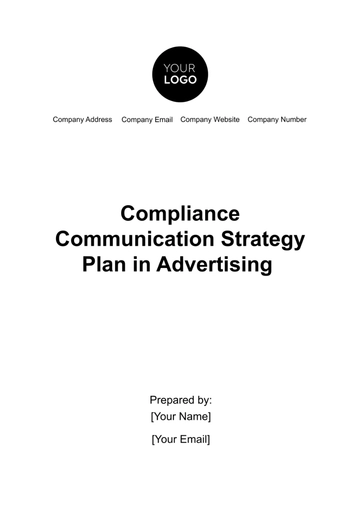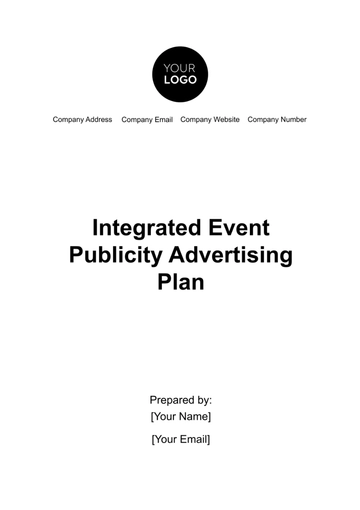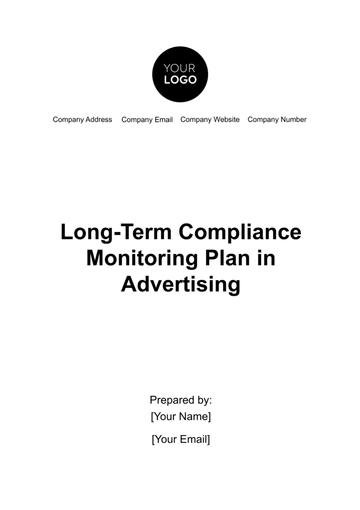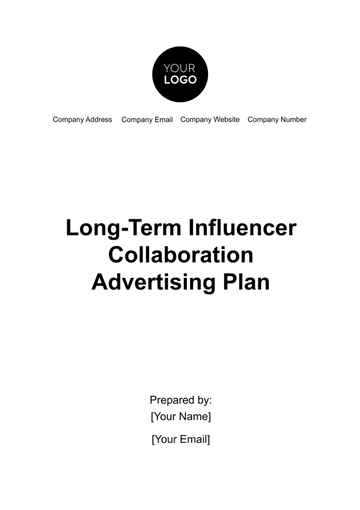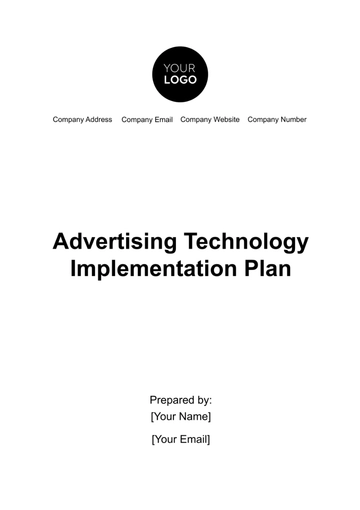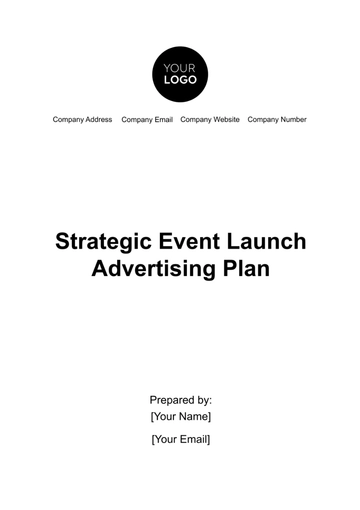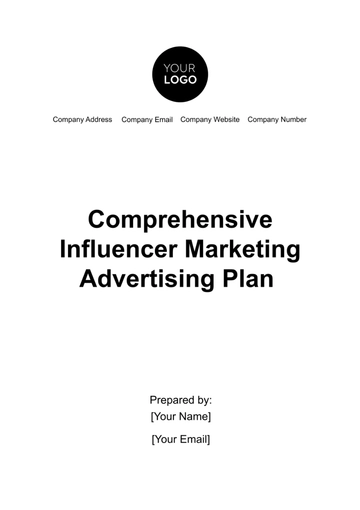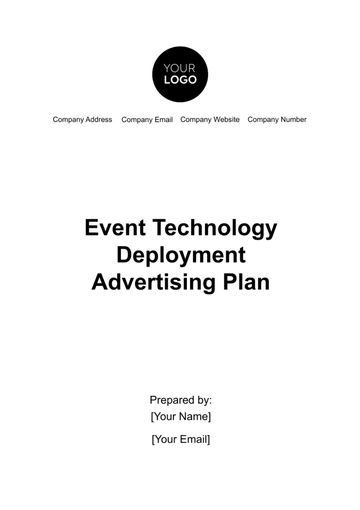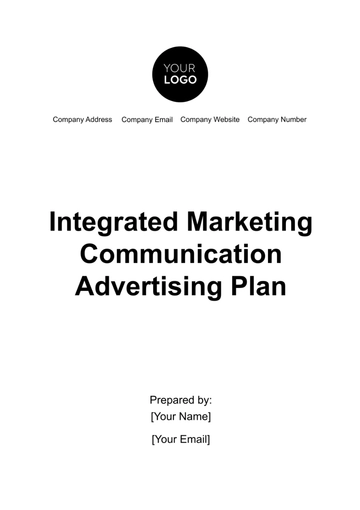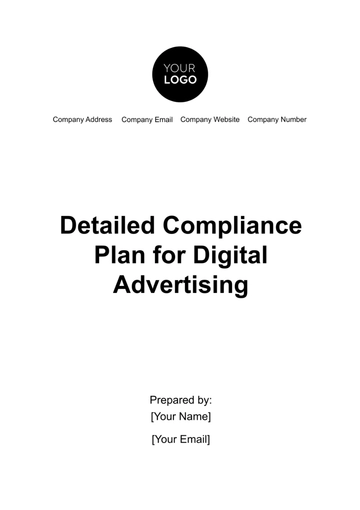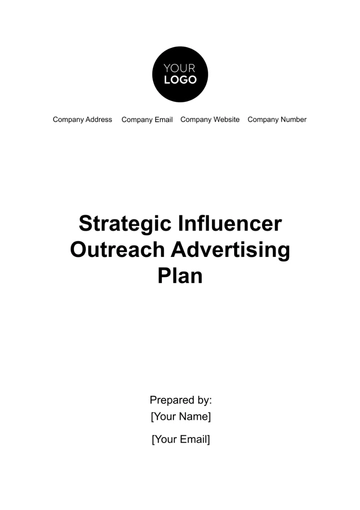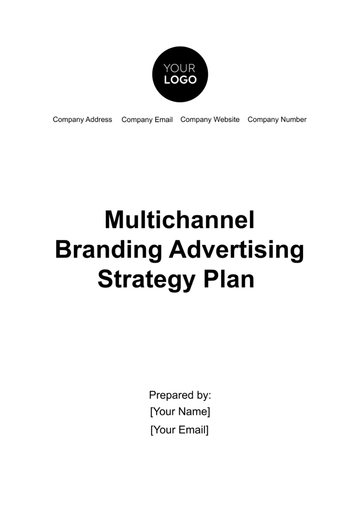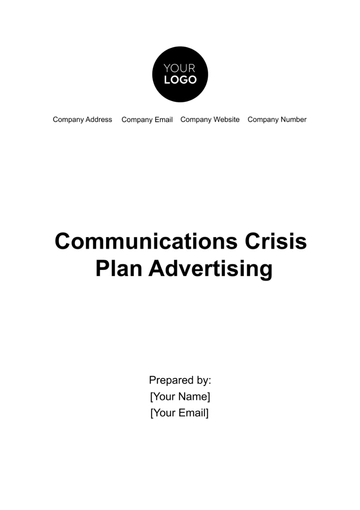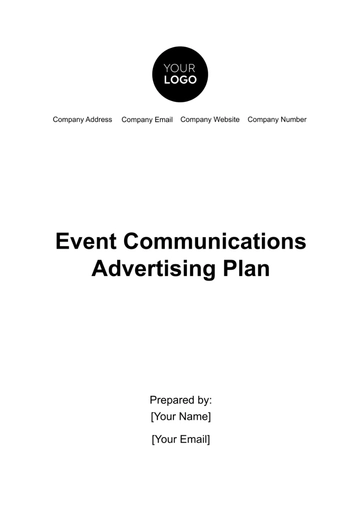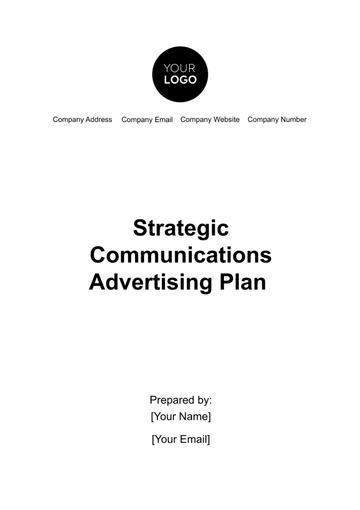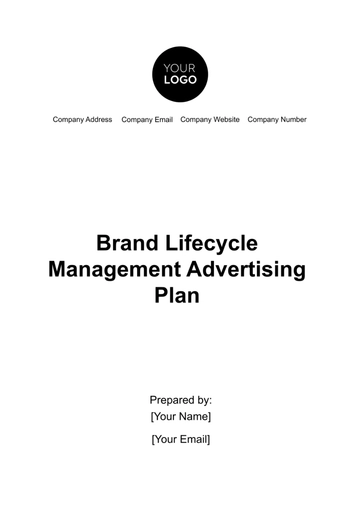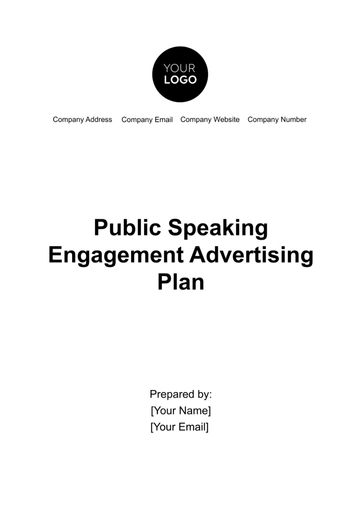Strategic Event Launch Advertising Plan
Executive Summary
“[Event Name]" is poised to be a highlight in the region's cultural calendar. As a three-day music and arts festival, it aims to attract a diverse audience with its blend of music, art, and community activities. Our strategic advertising plan is designed to build anticipation, drive ticket sales, and create a memorable brand experience. We are targeting an ambitious sell-out for early bird tickets and sustained interest leading up to the event.
Objectives
Brand Awareness: Position "[Event Name]" as a key player in the regional festival scene.
Ticket Sales: Target a sell-out of early bird tickets within two weeks and maintain momentum.
Engagement: Generate excitement and interaction across multiple platforms.
Sponsorship Activation: Provide value-added experiences for sponsors.
Target Audience
Segment | Characteristics | Preferred Channels | Marketing Approach |
Young Adults | Aged 18-30, active on social media, interested in contemporary music and arts. | Instagram, TikTok, Spotify | Engaging, visually stimulating content with strong calls to action. |
Cultural Enthusiasts | Regular attendees of arts and music events, readers of niche blogs and publications. | Niche blogs, Email newsletters, YouTube | In-depth content, artist interviews, sneak peeks of the event. |
Families | Seek family-friendly weekend activities, value safety and convenience. | Facebook, Local radio, Community bulletin boards | Highlighting family-friendly aspects, safety measures, and convenience. |
Key Messaging
Primary Message: "[Event Name] - A Symphony of Sights and Sounds."
Secondary Messages:
"Discover a world where music, art, and community converge."
"Family-friendly spaces, unforgettable experiences."
Advertising Strategies and Tactics
1. Digital Advertising
Channel | Specific Tactic | Objective | Timeline | Budget |
Social Media | Targeted ads, influencer collaborations, interactive challenges. | Brand awareness, engagement, ticket sales. | T-3 months | $15,000 |
Google AdWords | Keyword campaigns focusing on festival-related searches. | Drive website traffic and ticket sales. | T-3 months | $10,000 |
Email Marketing | Personalized email campaigns with exclusive offers. | Enhance customer loyalty and repeat sales. | T-2 months | $5,000 |
2. Traditional Advertising
Medium | Specific Tactic | Objective | Timeline | Budget |
Radio | Partnerships for on-air promotions, interviews, giveaways. | Local awareness, ticket sales. | T-2 months | $8,000 |
Print | Strategic placement of posters, flyers, and local newspaper ads. | Local awareness, community engagement. | T-2 months | $7,000 |
Outdoor | Billboards in key locations for maximum visibility. | Brand presence, wide audience reach. | T-2 months | $10,000 |
3. Public Relations and Community Engagement
Action Plan
Press Releases: Targeted release to major local and regional news outlets.
Media Partnerships: Collaborative features in local arts and culture publications.
Community Outreach: Partnership initiatives with local art institutions and businesses.
Measurement and Evaluation
The success of the "[Event Name]" advertising campaign will be meticulously tracked and analyzed through a variety of metrics. This section expands on the strategies for measurement and evaluation, detailing specific metrics, tools, and action items necessary for comprehensive assessment.
1. Key Performance Indicators (KPIs)
Metric | Tool/Method | Frequency | Action Item |
Daily Ticket Sales | Event Ticketing Platform | Daily | Adjust marketing tactics based on sales trend. |
Conversion Rate | Web Analytics | Weekly | Optimize website and checkout process. |
Early Bird vs. Regular Sales | Sales Data Analysis | Bi-Weekly | Tailor promotions to boost specific ticket types. |
2. Web Analytics
Metric | Tool/Method | Frequency | Action Item |
Website Traffic | Google Analytics | Weekly | Adjust SEO and content strategy. |
Bounce Rate | Google Analytics | Weekly | Improve landing page engagement. |
User Flow and Behavior | Web Analytics Tools | Bi-Weekly | Enhance user experience and navigation. |
3. Social Media Engagement
Metric | Tool/Method | Frequency | Action Item |
Likes, Shares, Comments | Social Media Analytics | Daily | Tailor content based on engagement trends. |
Hashtag Performance | Social Media Monitoring | Daily | Promote popular hashtags, create new ones. |
Audience Growth | Platform-Specific Analytics | Weekly | Adjust audience targeting and content strategy. |
4. Sponsorship Value
Metric | Tool/Method | Frequency | Action Item |
Sponsor Brand Engagement | Mixed Media Analytics | Bi-Weekly | Enhance sponsor visibility in campaigns. |
Sponsor Mention Analysis | Media Monitoring Tools | Monthly | Report to sponsors, adjust sponsor-focused content. |
5. Evaluation and Reporting
Reporting Structure
Weekly Reports: Covering web analytics, social media performance, and initial ticket sales data.
Bi-Weekly Meetings: With the marketing team to discuss KPI progress and tactical adjustments.
Monthly Comprehensive Review: In-depth analysis of all metrics, including sponsorship value and overall campaign effectiveness.
Post-Event Evaluation
Survey Analysis: Detailed evaluation of attendee feedback.
ROI Calculation: Assessing the return on investment for various marketing channels.
Final Report: A comprehensive review of the campaign's success and areas for improvement.
Continuous Improvement
Real-Time Adjustments: Based on daily and weekly data, immediate changes will be made to the campaign as needed.
Post-Campaign Analysis: Lessons learned will be documented to inform future event marketing strategies.
Audience Engagement and Retention Strategy
Overview
This section outlines the approach to engage and retain the audience from the initial announcement of "[Event Name]" to post-event follow-ups. The focus is on building a community around the festival, encouraging repeat attendance, and fostering a lasting relationship with the brand.
Engagement Plan
Phase | Tactics | Tools | Objectives |
Pre-Event | Social media contests, exclusive content releases, interactive polls. | Social Media Platforms, Email Marketing | Build excitement, gather audience insights. |
During Event | Live social media updates, on-site engagement activities, real-time contests. | Social Media, Mobile Apps | Enhance live experience, encourage social sharing. |
Post-Event | Thank you emails, surveys, highlights reel, early bird offers for next event. | Email Marketing, Video Platforms | Collect feedback, maintain interest, drive future sales. |
Content Marketing Strategy
Overview
Effective content marketing is critical for creating buzz and providing valuable information to potential attendees. This section focuses on a multi-channel approach to content that educates, entertains, and engages the target audience.
Content Plan
Type | Content Examples | Channels | Purpose |
Educational | Artist spotlights, festival guides, safety information. | Blog, Email Newsletters, Social Media | Inform and prepare attendees for the event. |
Entertaining | Behind-the-scenes videos, artist interviews, teaser trailers. | YouTube, Social Media, Website | Build excitement and interest in the event. |
Engagement-Driven | User-generated content campaigns, Q&A sessions, polls and surveys. | Social Media, Email, Website | Foster community and interaction around the event. |
Sponsorship Maximization Strategy
Overview
Sponsorships play a crucial role in enhancing the festival experience and funding. This section outlines the approach to maximize sponsor value, ensuring mutually beneficial relationships and successful activations.
Sponsorship Plan
Sponsorship Level | Benefits | Activation Methods | Expected Outcomes |
Platinum | Main stage naming rights, VIP experiences, prominent branding. | On-site activations, Co-branded content | High visibility, attendee engagement with the brand. |
Gold | Secondary stage rights, branded lounges, digital acknowledgments. | Digital campaigns, On-site experiences | Brand awareness, digital and physical engagement. |
Silver | Booth space, social media mentions, program listings. | Social Media Campaigns, Physical presence at event | Targeted audience reach, brand awareness |
Conclusion
The success of the "[Event Name]" hinges on the effective execution of this strategic advertising plan. Through a mix of digital and traditional advertising, alongside robust community engagement, we aim to not only meet but exceed our objectives and establish the event as an anticipated annual occurrence.
Advertising Templates @ Template.net
